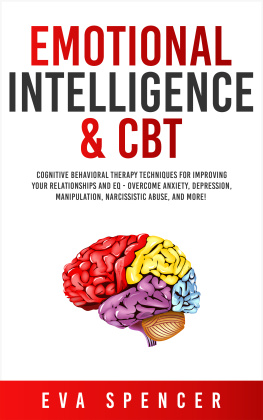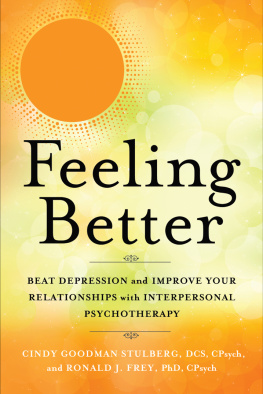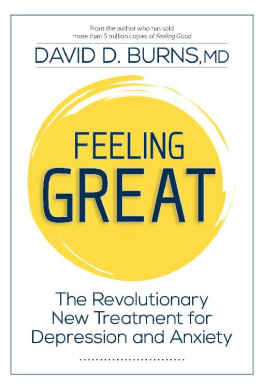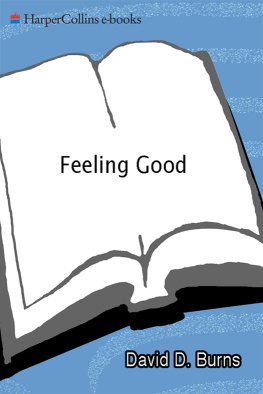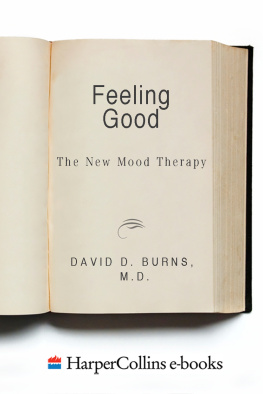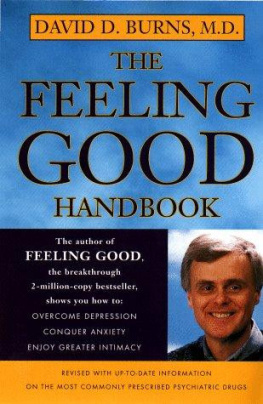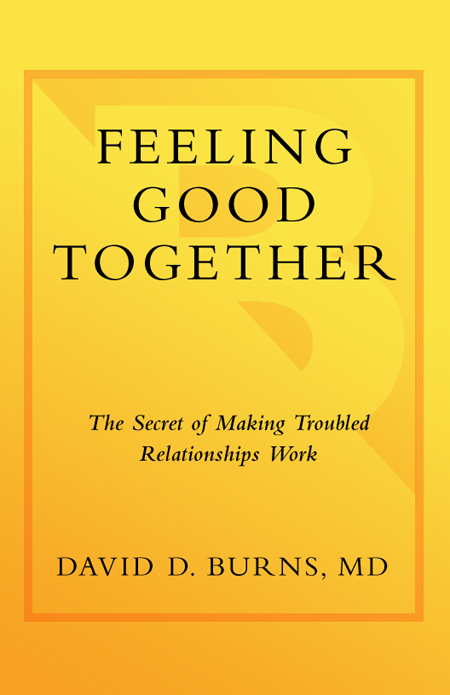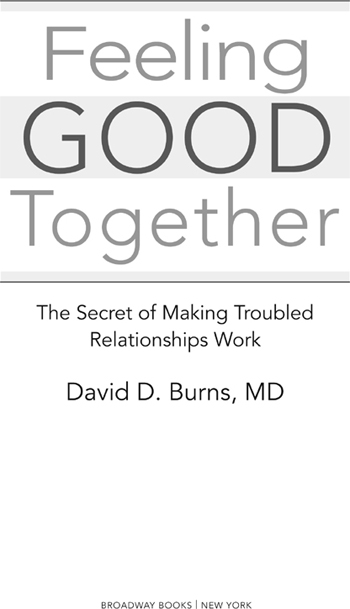David D. Burns M.D. - Feeling Good Together: The Secret to Making Troubled Relationships Work
Here you can read online David D. Burns M.D. - Feeling Good Together: The Secret to Making Troubled Relationships Work full text of the book (entire story) in english for free. Download pdf and epub, get meaning, cover and reviews about this ebook. year: 2008, publisher: Crown Archetype, genre: Home and family. Description of the work, (preface) as well as reviews are available. Best literature library LitArk.com created for fans of good reading and offers a wide selection of genres:
Romance novel
Science fiction
Adventure
Detective
Science
History
Home and family
Prose
Art
Politics
Computer
Non-fiction
Religion
Business
Children
Humor
Choose a favorite category and find really read worthwhile books. Enjoy immersion in the world of imagination, feel the emotions of the characters or learn something new for yourself, make an fascinating discovery.

- Book:Feeling Good Together: The Secret to Making Troubled Relationships Work
- Author:
- Publisher:Crown Archetype
- Genre:
- Year:2008
- Rating:4 / 5
- Favourites:Add to favourites
- Your mark:
Feeling Good Together: The Secret to Making Troubled Relationships Work: summary, description and annotation
We offer to read an annotation, description, summary or preface (depends on what the author of the book "Feeling Good Together: The Secret to Making Troubled Relationships Work" wrote himself). If you haven't found the necessary information about the book — write in the comments, we will try to find it.
Simple, Powerful Techniques that Make Relationships Work
Why wont my husband ever express his feelings?
Why wont my wife listen?
Why is my sister such a control freak?
Why does my ex act like such a total jerk?
Whats wrong with people?
We all have someone we cant get along withwhether its a friend or colleague who complains constantly, a relentlessly critical boss, an obnoxious neighbor, a teenager who pouts and slams doors (all the while insisting shes not upset), or maybe a loving, but irritating spouse.
In his bestselling book, Feeling Good, Dr. David Burns introduced Cognitive Behavioral Therapy, a clinically proven, drug-free therapy that has revolutionized the treatment of clinical depression throughout the world. Now, in Feeling Good Together, he presents Cognitive Interpersonal Therapy, a radical new approach that will help you transform troubled, conflicted relationships into successful, happy ones.
Dr. Burns method for improving these relationships is easy and surprisingly effective. In Feeling Good Together, youll learn:
How to stop pointing fingers at everyone else and start looking at yourself.
How to pinpoint the exact cause of the problem with any person youre not getting along with.
How to solve virtually any kind of relationship conflict almost instantly.
Based on twenty-five years of clinical experience and groundbreaking research on more than 1,000 individuals, Feeling Good Together presents an entirely new theory of why we have so much trouble getting along with each other. The book is filled with helpful examples and brilliant, user-friendly tools such as the Relationship Satisfaction Test, the Relationship Journal, the Five Secrets of Effective Communication, the Intimacy Exercise, and more, so you can enjoy far more loving and satisfying relationships with the people you care about.
You deserve rewarding, intimate relationships. Feeling Good Together will show you how.
David D. Burns M.D.: author's other books
Who wrote Feeling Good Together: The Secret to Making Troubled Relationships Work? Find out the surname, the name of the author of the book and a list of all author's works by series.

